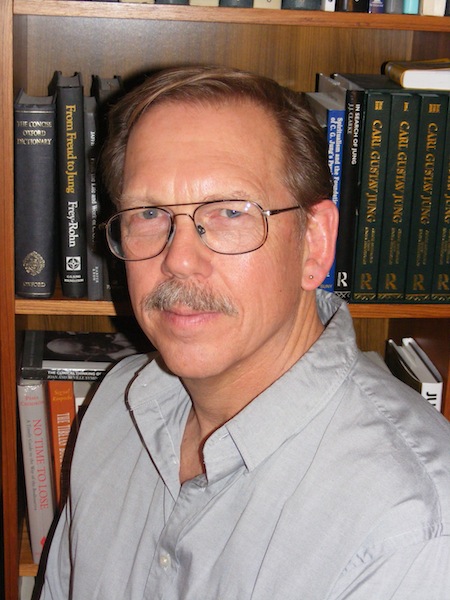Fall Meeting 2014
Nov 7-8, 2014
Then and Now: 75 Years of Pushing Theological
Boundaries
Tucson Room at Church Divinity School of the Pacific (CDSP), Berkeley, California
Schedule
Friday, Nov 72-5 pm - Paper Session
5-7 pm - Business Meeting, Social Time, Dinner
7-8:30 pm - Public Lecture, Richard Payne (IBS)
Saturday, Nov 8
9:30 am-noon - Paper Session
Topic
The first meeting of PCTS was held in October, 1939. In celebration of our 75th anniversary, distinguished members and guests will revisit the topics and papers from that first meeting and examine what our theological history can tell us about future directions. Please read both the 1939 papers and the contemporary papers prior to the meeting for full participation in our discussion.Paper Session - Friday, Nov 7, 2-5 pm
Theological Perspectives
Ted Peters (PLTS)
Commenting on "What is essential in the Christian
religion? Is Protestantism a positive principle." (pdf)by Aaron J. Ungersma, 1905-2000 (SFTS, books
Contemporary paper is also titled "What is essential in the Christian Religion? Is Protestantism a Positive Principle?" (pdf)
Respondent is Jack Crossley (USC)
Andrew Porter (GTU)
Commenting on "What is essential in the Christian
religion? Christianity as idea and as event." (pdf)by Elton Trueblood, 1900-1994 (Stanford, wikipedia, bio, books
Contemporary paper is "Christianity in History, Then and Now" (pdf)
Respondent is Doug McGaughey (Willamette)
Public Lecture - Friday, 7-8:30 pm
Public Lecture, Richard Payne (IBS)
Crossing Streams in the Dark: Orthogonal Wanderings Theologians, attempting
to articulate the unique status of Christian belief, have
struggled with issues of pluralism since the very
beginning of theological reflection. In the eras of
discovery and empire, however, contact with an increasing
variety of religious traditions, beyond the already
familiar categories of Judaism and Islam, pushed the topic
of pluralism even further into explicit theological
reflection. In the last century and a half, several
different theological programs have been proposed to
address concerns regarding pluralism as such, and more
recently concerns regarding plural religious identity. The
speaker, though not himself a theologian, seeks to
articulate the dialectic of strange/familiar/strange as a
means to move beyond what Hans Blumenberg has called
"reoccupied positions." The tendency to interpret Buddhist
thought from a Christian perspective forces Buddhism to
occupy theologically familiar positions. This
fundamentally Procrustean interpretive strategy impedes
the apprehension of pluralism, which is especially
important for theological education in today's religious
landscape.
Theologians, attempting
to articulate the unique status of Christian belief, have
struggled with issues of pluralism since the very
beginning of theological reflection. In the eras of
discovery and empire, however, contact with an increasing
variety of religious traditions, beyond the already
familiar categories of Judaism and Islam, pushed the topic
of pluralism even further into explicit theological
reflection. In the last century and a half, several
different theological programs have been proposed to
address concerns regarding pluralism as such, and more
recently concerns regarding plural religious identity. The
speaker, though not himself a theologian, seeks to
articulate the dialectic of strange/familiar/strange as a
means to move beyond what Hans Blumenberg has called
"reoccupied positions." The tendency to interpret Buddhist
thought from a Christian perspective forces Buddhism to
occupy theologically familiar positions. This
fundamentally Procrustean interpretive strategy impedes
the apprehension of pluralism, which is especially
important for theological education in today's religious
landscape. Paper Session - Saturday, Nov 8, 9:30 am-noon
Biblical
Perspectives
Barbara Green (DSPT)
Commenting on "What is essential in the Christian religion? Hebraism, Judaism, and Christianity." (pdf)by James Muilenburg, 1896-1974 (PSR, Essays in Honor of)
Contemporary paper is "If That Was Then, What Is Now? James Muilenburg, Ourselves and Religious Discourse" (pdf)
Respondent is Gina Hens-Piazza (JST)
Herman Waetjen (SFTS Emeritus)
Commenting on "What is essential in the Christian
religion? the Jesus of history and the church." (pdf)by Randolph Crump Miller, 1910-2002 (CDSP, obituary, books
Contemporary paper is "A Look at 'The Jesus of History and the Church' by Randolph Crump Miller" (pdf)
Respondent is Jack Crossley
You may register at the meeting or online via the PCTS registration page. To renew full yearly membership for 2014-15 and register for the Fall 2014 meeting simultaneously via Pay Pal, you may: Student members and nonmember attendees, please use the PCTS registration page.

